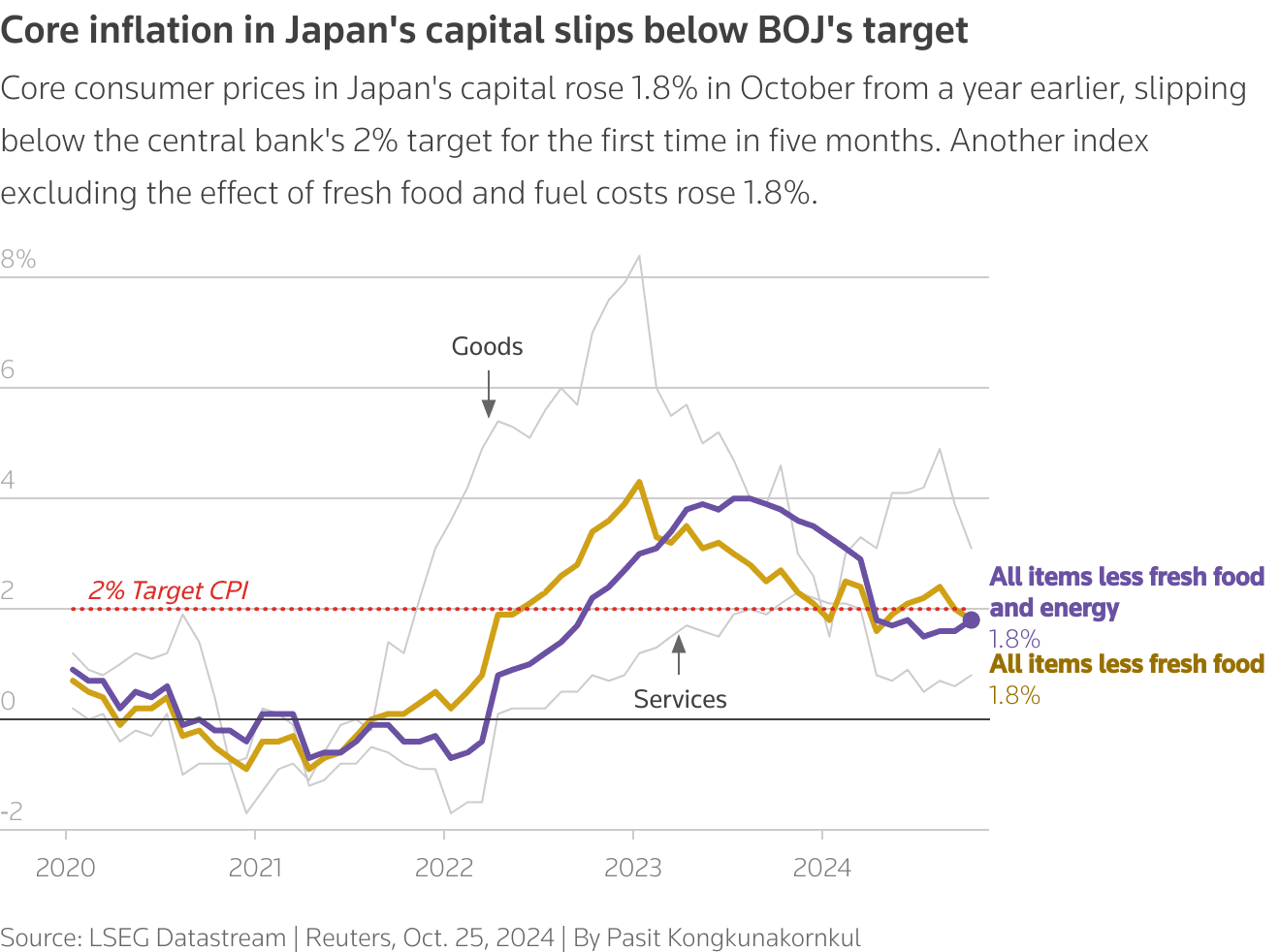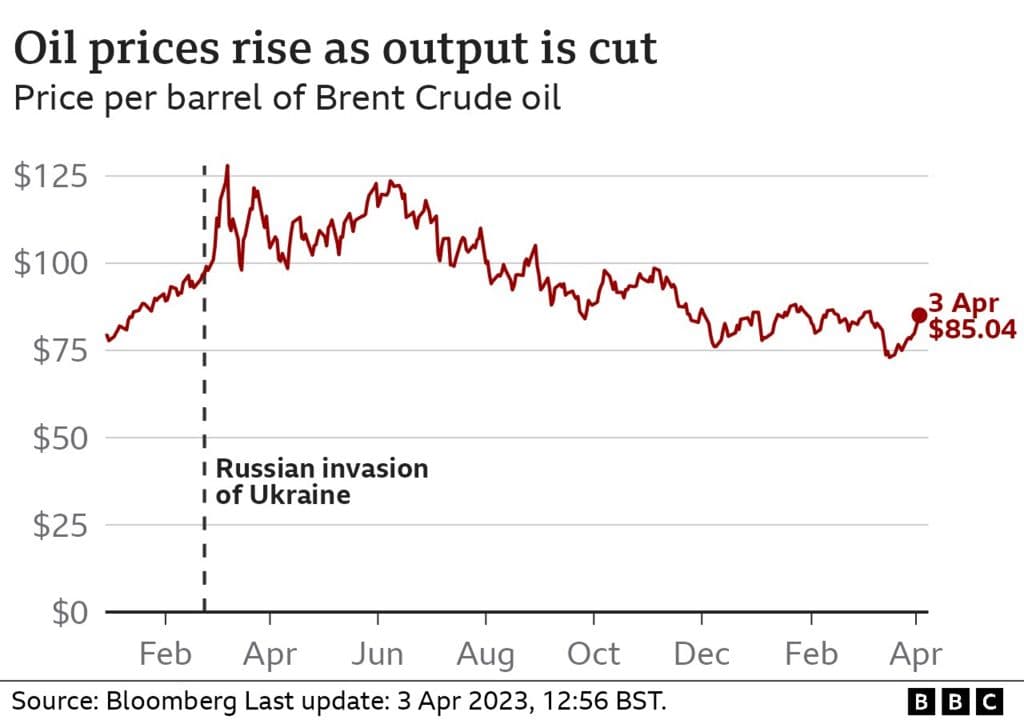Japan inflation holds above BOJ goal, core prices rise 3.0 percent
Japan's core consumer prices rose 3.0 percent year on year in October, keeping inflation above the Bank of Japan's two percent target and reinforcing pressure on policymakers. The government also reported a stronger than expected rise in exports for October, a combination that increases the likelihood of further monetary tightening and will affect borrowing costs and the yen.

Japan's core consumer price index rose 3.0 percent year on year in October, the government reported on Friday, matching the median forecast of economists and accelerating from September's 2.9 percent reading. The broadly watched measure, which excludes fresh food but includes fuel, remains persistently above the Bank of Japan's two percent inflation target and is intensifying debate about the pace of policy normalization.
A narrower measure that strips out both fresh food and energy climbed 3.1 percent year on year, indicating that inflation pressures are not limited to volatile items such as fuel and seasonal food. That reading is particularly significant because it suggests price increases are spreading more widely through the economy, rather than being driven primarily by external commodity shocks.
The government release also showed a stronger than expected rise in exports for October, reinforcing a growth narrative that gives the central bank room to consider further tightening. Taken together, the inflation and trade data strengthen the argument that price dynamics in Japan have shifted, with domestic demand and external momentum both contributing to an above target environment.
For the Bank of Japan, which has spent years near zero interest rates, the challenge is balancing the goal of anchoring inflation expectations with the risk of choking off a fragile recovery. Persistent inflation readings above two percent increase market speculation that the BOJ will take additional steps to tighten policy, whether by lifting short term rates or by further adjusting its yield guidance. Any move toward tighter policy would carry implications for government borrowing costs, corporate financing, and the exchange rate.
Household budgets remain a central concern. With core inflation running at 3.0 percent and the broader measure at 3.1 percent, real wage gains will be necessary to sustain consumption without eroding living standards. Past episodes in Japan have shown that if wages do not keep pace with prices, households can retrench, weakening domestic demand and complicating the central bank's task.
Investors and businesses are likely to watch the next round of data, including wage and retail sales figures, for signs that price pressures are entrenching. A sustained pattern of above target inflation would increase the probability of further BOJ action and could hasten a reconfiguration of global capital flows toward Japan, with potential upward pressure on short term yields and appreciation of the yen.
While matching forecasts reduces the element of surprise, the upward trajectory in core measures underscores that Japan's inflation story is evolving. Policymakers will need to weigh the evidence of broad based price gains against the still important goal of supporting durable growth, a balancing act that will shape markets and household finances in the months ahead.

